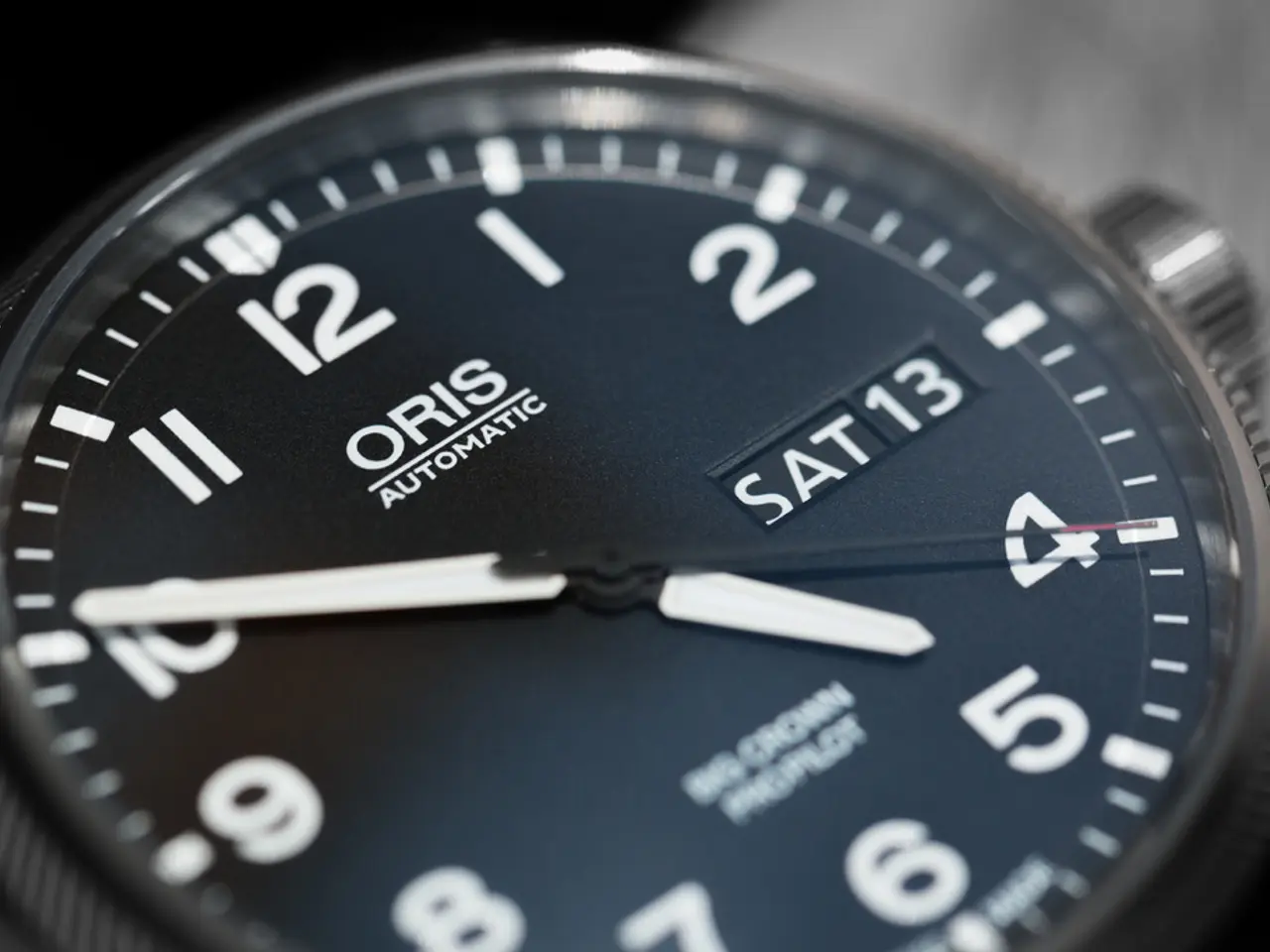Smartwatch Accuracy in Stress Monitoring Questioned by Recent Research
In a recent study published in the Journal of Psychopathology and Clinical Science, researchers investigated the accuracy of smartwatches, including the Garmin Vivosmart 4, in measuring stress levels. The study, led by Eiko Fried, found that while the smartwatch provides decent metrics in measuring sleep, the associations were weaker for tiredness and stress.
The study revealed that the correlation between self-reported stress scores and smartwatch readings was "basically zero." This finding suggests that the stress levels on Garmin smartwatches, as estimated by the Firstbeat Analytics engine, may not be as reliable as previously thought.
The Garmin Vivosmart 4 measures stress largely based on heart rate variability (HRV) analysis, which reflects parasympathetic and sympathetic nervous system activity. While HRV changes reliably correlate with stress and autonomic nervous system activity, the physiological complexity and variability among individuals imply that such measurements should be interpreted cautiously.
The study raises several questions about differences between data sources and potential measurement issues. For instance, activities such as public speaking and running up a flight of stairs can both send your heart racing, but the underlying reasons why are fundamentally different. This highlights the need for further research to optimize the algorithms and confirm the accuracy of stress metrics from wrist-worn devices.
The study did not comment on Garmin's response to the recent findings. Gizmodo reached out to Garmin for comment and will update the story if it responds.
Interestingly, the 2023 meta-analysis of studies about wearables and stress management found that the effect of wearable-based approaches on alleviating or reducing stress had not been analyzed. Most studies up until the 2023 meta-analysis had focused on presenting overviews of wearable devices.
The scientific consensus indicates that smartwatches, including devices like the Garmin Vivosmart 4, use sensors such as photoplethysmography (PPG) to measure heart rate variability (HRV), an important physiological indicator linked to stress levels through the autonomic nervous system balance. However, while HRV is correlated with stress, the accuracy of consumer smartwatches to precisely quantify stress levels remains somewhat limited and continues to require further validation in research settings.
Wearing the Garmin Vivosmart 4 more frequently can result in better measurements, especially while you sleep, according to Garmin's website. This suggests that consistent wear of the smartwatch could potentially help create a better understanding of the full range of stress and relaxation states that you experience.
The study investigated the concurrent overlap between self-report and wearable sensor data measuring stress, tiredness, and sleep in nearly 800 students who wore a Garmin Vivosmart 4 smartwatch. For the majority of individuals in the study, self-report and physiological measures of stress showed very weak to no associations.
The findings of another 2023 study by researchers at the Vrije Universiteit Amsterdam found that smartwatches frequently failed to distinguish between excitement and stress. This adds to the growing body of evidence suggesting that the accuracy of smartwatches in measuring emotional states requires further improvement.
In conclusion, while smartwatches like the Garmin Vivosmart 4 use HRV via PPG sensors to estimate stress, the precise scientific validation of its stress measurement accuracy is still incomplete. Further research is recommended to enhance the reliability of stress metrics from wrist-worn devices.
The study in the Journal of Psychopathology and Clinical Science found that the correlation between self-reported stress scores and smartwatch readings from devices like the Garmin Vivosmart 4 was "basically zero," suggesting that stress levels on such smartwatches may not be as reliable as previously thought.
The scientific consensus indicates that smartwatches use sensors such as photoplethysmography (PPG) to measure heart rate variability (HRV), which is linked to stress levels through the autonomic nervous system balance. However, while HRV is correlated with stress, the accuracy of consumer smartwatches to precisely quantify stress levels remains somewhat limited.
A 2023 study by researchers at the Vrije Universiteit Amsterdam found that smartwatches frequently failed to distinguish between excitement and stress, adding to the growing body of evidence suggesting that the accuracy of smartwatches in measuring emotional states requires further improvement.
The study of nearly 800 students wearing the Garmin Vivosmart 4 found that self-report and physiological measures of stress showed very weak to no associations for the majority of individuals. This indicates that the concurrent overlap between self-report and wearable sensor data measuring stress, tiredness, and sleep needs further improvement in smartwatches like the Garmin Vivosmart 4.




